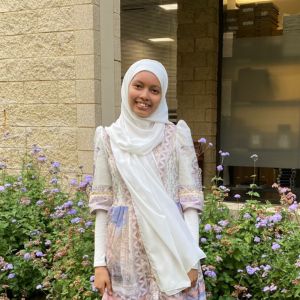

Will Borghei to help Launch Nano-Satelitte to Space
Trinity alumnus Hamidreza Borghei (TCFS 2013) also known as ‘Will’ is the Executive Secretary of the Melbourne Space Program (MSP). We caught up with him to learn about the first student nano-satellite set to soon be launched into space.
In 1967, a small group of University of Melbourne students finished constructing the first ever student satellite sent to space, Australis-OSCAR-5. Held together by sticky-tape and bed springs, the satellite launched on a US Air Force rocket in 1970.
50 years later, a new generation of student space enthusiasts at the University of Melbourne are building and launching their very own nano-satellite, CS-1.
The CS-1 nano-satellite is a vital stepping stone to Australia one day possessing a nano-satellite with the capabilities to help in finding more cost-effective ways in monitoring issues such as natural disasters and bushfires as well as in national security.
‘The thing about satellite imaging for the bushfires, if you want to do that you have to contact foreign countries, we’re doing it for $300 thousand and it’s a student project,’ says Will.
‘We’re trying to rekindle the Australian passion for space industry. The first student satellite ever was launched by an Australian group, that was 50 years ago.’
Will who was born in Iran, took his preferred name from William Wallace, a Scottish knight who fought in the Scottish Independence Movement and whose character was also the protagonist in the award-winning film Braveheart.
The Melbourne Space Program (MSP) Ltd., formally the University of Melbourne’s Space Program, evolved from a group of students in the Melbourne School of Engineering, and now has over 70 primary volunteers and 300 general members in total.
MSP ‘seeks to promote innovation, technological advancement and education in support of a strong Australian aerospace sector that contributes significant social and financial value both nationally and internationally.’
Will credits the Foundation Studies program at Trinity, particularly Maths 1, Maths 2 and Physics for giving him the confidence to succeed at the MSP.
He says subjects such as History of Ideas (HOI), drama and literature have given him the communication skills to deal with a range of internal and external stakeholders.
‘The communication skills are really important in the industry … It’s not just about communication between engineers, it’s about communication with the managers, financial advisors, the lawyers and other engineers.’
Networking and the ability to gain practical skills picked up at MSP are making it easier for students to find employment after finishing their degrees.
Will encourages students from other faculties of the University and Trinity College to also volunteer at the MSP. Some MSP volunteering opportunities are in areas including Management, Marketing and Communications, IT and the Regulatory Department.
Although volunteers at the MSP are expected to work ten hours per week the team understand university and work commitments can at times take priority.
‘We are understanding, if one of the members approaches us and says look in the next two weeks I have exams I can’t do anything. We’ll say that’s fine, thanks for telling us, take your break, focus on your studies.’
‘There is a certain minimum requirement for the program to move forward, but if you want to put more time you’re more than welcome. At night when I go to sleep I feel burnout, but at the same time I’m satisfied because I did what I promised I would do. I was responsible.’
Will is confident that all the hard work will be worth it once the students become the



